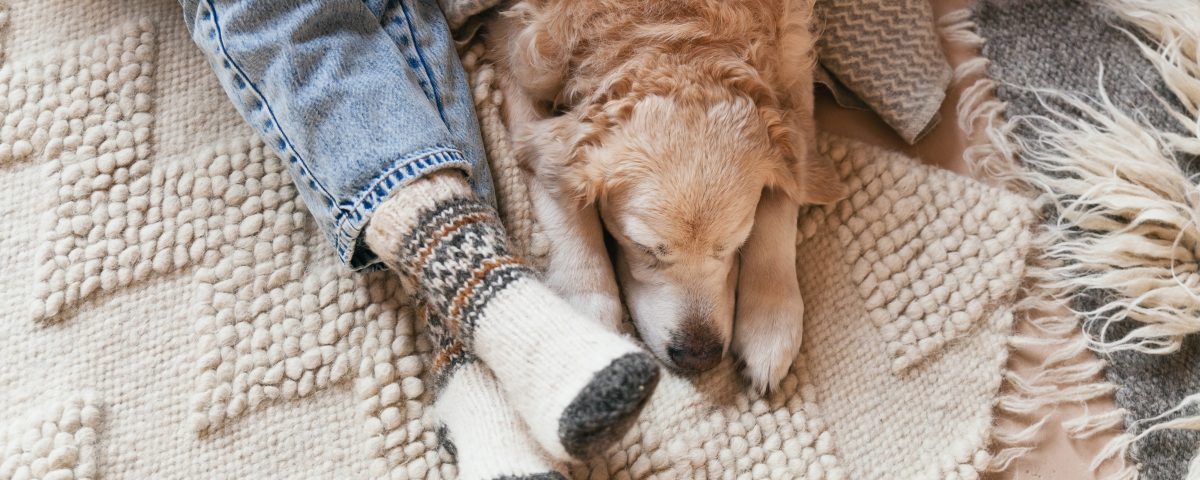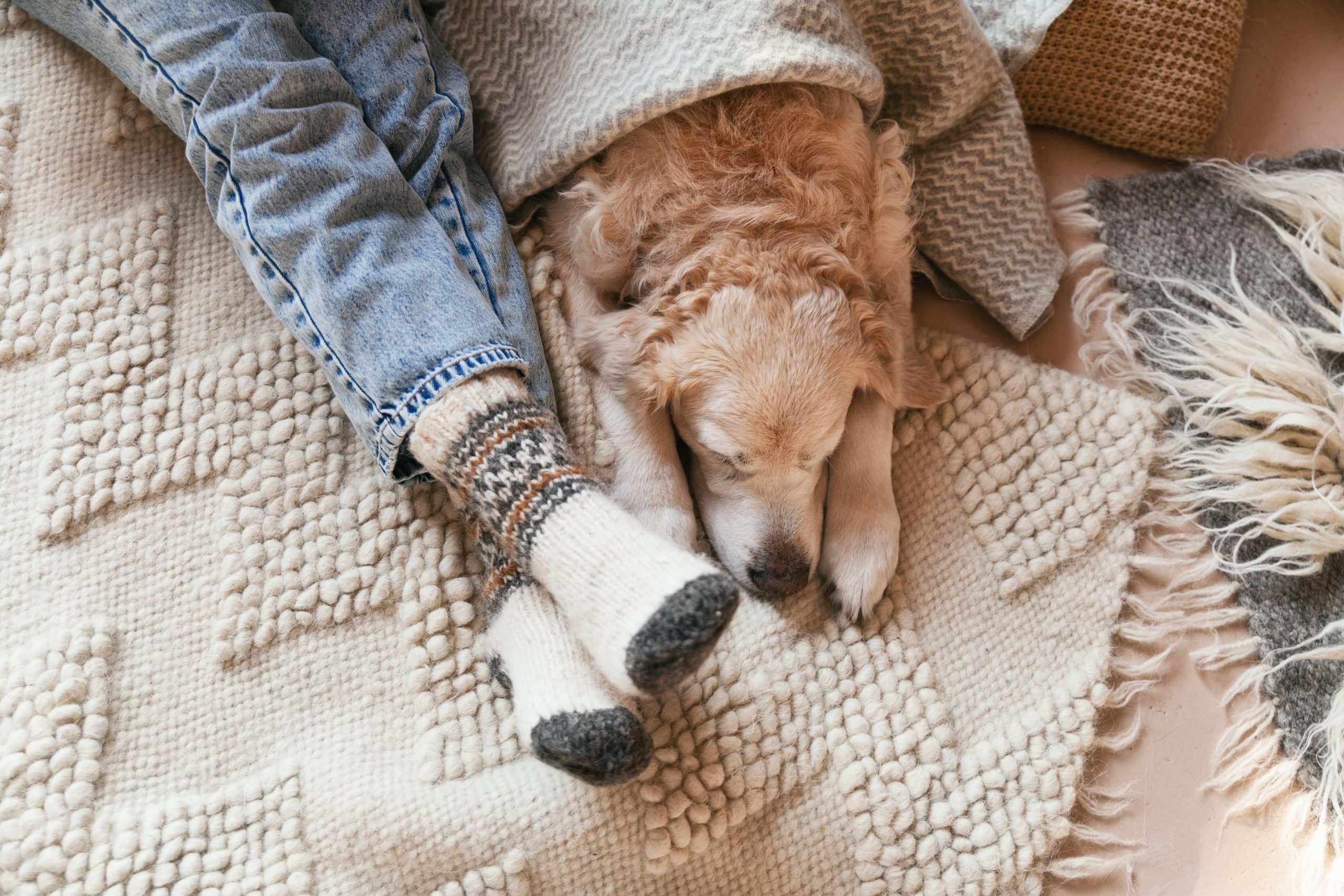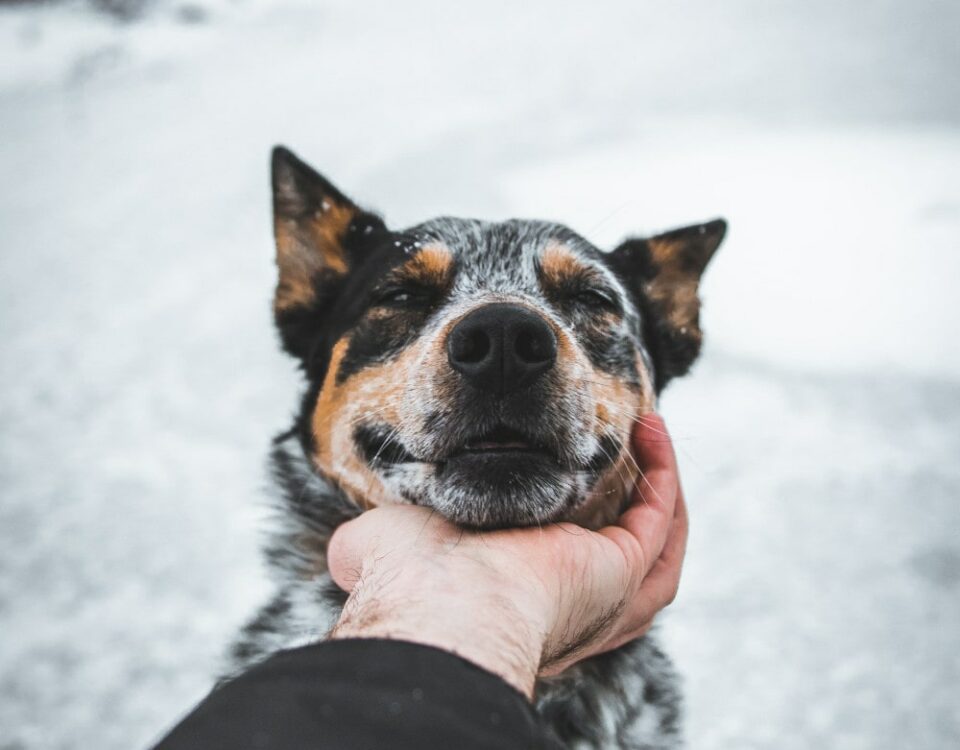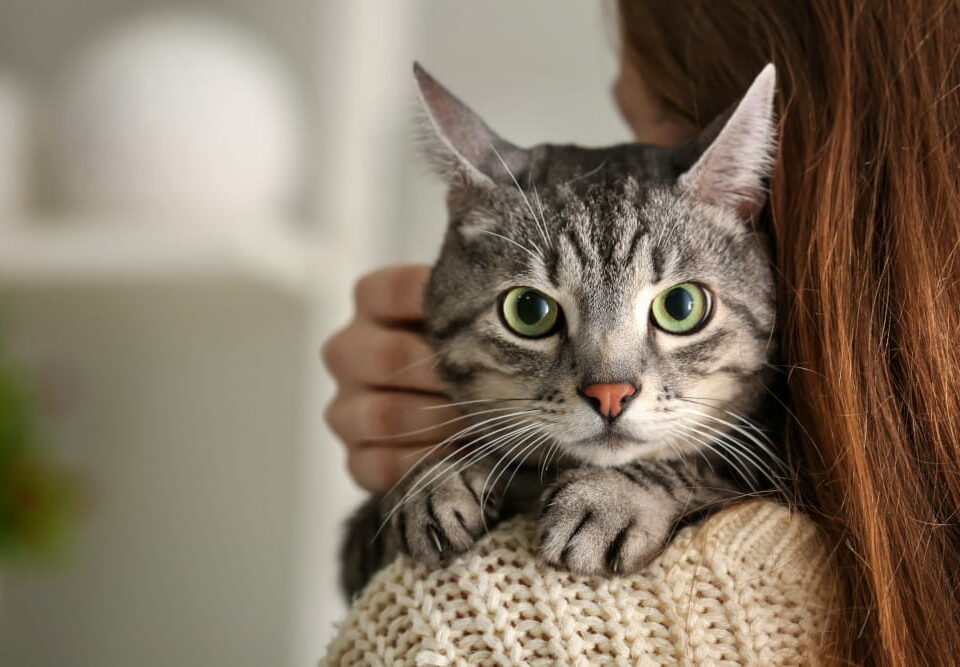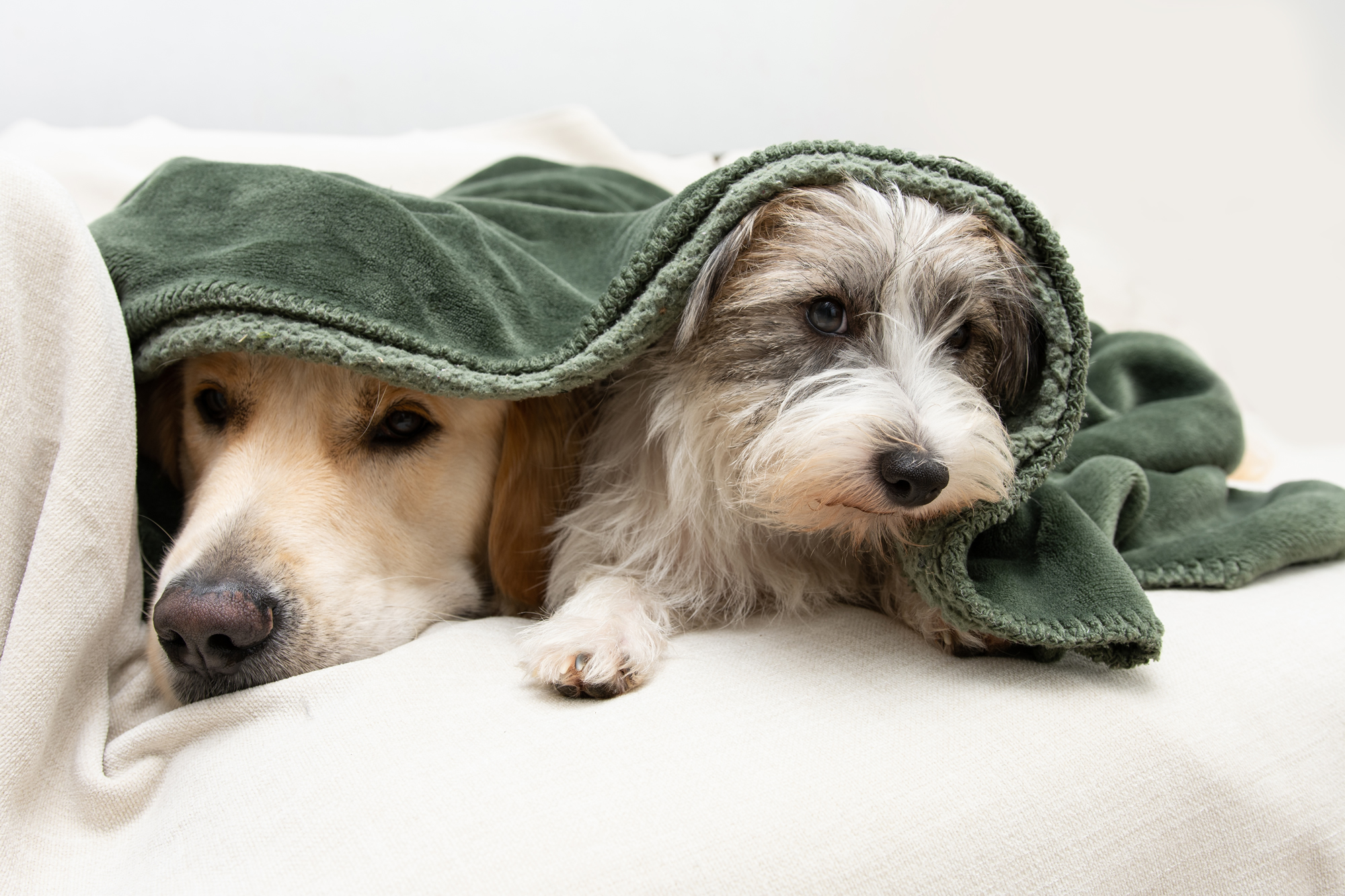
How can we help our older pets through the fireworks season?
October 19, 2022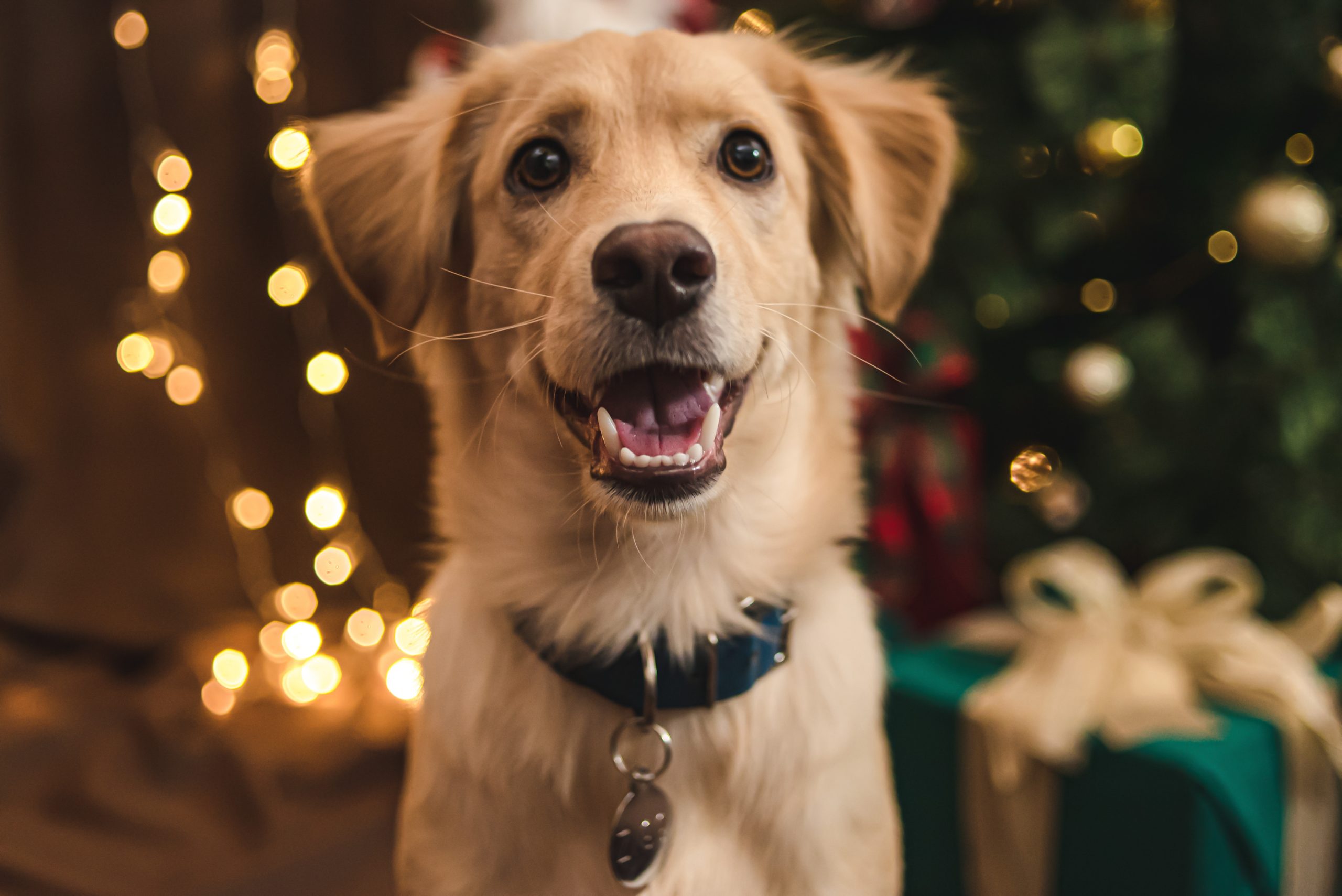
How to Help our Senior Pets through the Busy Festive Period
January 4, 2023
If you have a pet who is in their more senior years, it is perfectly normal to worry a little about them. Are they warm enough? Are they comfortable? Are they eating enough? The winter months can be more trying for elderly pets: navigating inclement weather, cold floors and long dark nights, but there are some simple steps that all owners can take to help support their furry companions through this colder season.
Let’s look at some ways we can help our golden oldies in the months ahead.
Bring outdoor pets inside
Pets shouldn’t be left outside during the winter months without shelter. If possible, bring them inside, or at least provide a warm and sheltered area. When you’re out and about, remember – cars can get very cold, and older dogs more easily get hypothermic if left in vehicles during the cold season.
Provide extra warmth
Senior pets are more susceptible to a chill, and cold can exacerbate joint conditions such as arthritis. Breeds with thinner coats will be more susceptible to cold, as will those pets with chronic health conditions. Cosy beds, extra blankets and even a pet jumper can all be utilised to keep pets warm.
There are plenty of dog jackets and dog jumpers available for every breed, size, shape and style of pooch, which can be worn outdoors from weather protection or even indoors for extra warmth. Always allow your dog to investigate a dog jacket before wearing it, and try it on for short periods first with plenty of rewards and reassurance.
Bedding should ideally be raised off the floor, to protect from draughts. Extra blankets and thick bedding will help insulate and warm sleeping pets. Extra padding will also help protect stiff joints from hard, cold floors, and keep those senior pets who have lost a bit of condition more comfortable.
Chemicals, grits and salts
If your pet goes outdoors in the winter, be aware of chemical hazards. Antifreeze can be extremely toxic, even in small quantities, but tastes sweet, so dogs and cats are often attracted to it. Clean up any spills immediately, and consider looking for a product which is free from ethylene glycol, which is the ingredient which makes antifreeze toxic to pets.
Grit and salt can stick to the paws and irritate them, even causing sores and ulceration if not removed. Check your pets’ paws after they go outside, and wash off any substances before they can cause problems or be licked off and ingested.
Exercise
It can be tempting to let older dogs skip a walk in the cold weather, or to keep an elderly cat indoors. However, keeping your pets exercising is vital for their joints, their muscle tone and their weight control. It is also necessary for positive mental stimulation.
If you are concerned about the temperature, the ground conditions or the weather, keep walks shorter but more frequent. Senior dogs don’t necessarily need a long hike, but a short potter with plenty of time to sniff and explore at their own pace is best. Keep away from icy ponds to avoid any falls or accidental freezing dips! Always check your dog’s paws after a walk, and remove any mud, stones, ice or debris.
Elderly cats may not wish to go outside as much in inclement weather, so try and encourage some playtime at home for exercise. Treat balls and puzzle feeders are a good way of introducing some gentle play and stimulation at home.
Food
Some more senior pets struggle to maintain their weight and condition as they age. Others find that a more sedentary lifestyle in their older years predisposes them to weight gain. In the winter, your pet may need a slight increase in calorie intake to maintain their core temperature if they are outside a lot, or exposed to cold temperatures. However, this is easily overdone, especially if they are exercising less, so keep a close eye on their weight and speak to a veterinary surgeon if you would like advice on their diet and food intake.
Pets can also still become dehydrated in the winter months, even though the temperatures aren’t high. Make sure your senior pets can easily access fresh water. Outside water sources should be regularly checked that they aren’t frozen over.
Grooming
If your pet’s hair is naturally long, or thick, that may seem like an advantage in the cold weather, and it will indeed help keep your pet warm and protected in inclement weather. Coat care is important to prevent tangles and matts that can be uncomfortable and even lead to underlying skin problems. Regular grooming is essential all year round for certain coat types, and regular coat maintenance is advisable for most dogs and long-haired cats. Centrally heated homes can also dry out skin, leading to itching and flaking, which can be alleviated by thorough brushing.
Winter Care: Final Thoughts
Senior pets are precious creatures and keeping them safe and happy is every pet owner’s wish. The winter can be a worrying time for many, but there are lots of ways to keep our elderly pets comfortable. Warmth, gentle exercise, appropriate food, and good grooming and coat maintenance are all aspects of pet ownership to focus on during the colder months.

